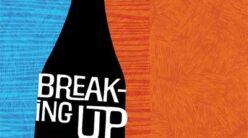Do you sometimes feel your habits and choices control you, rather than the other way around? Is there something about yourself you’ve tried to change, but you just can’t seem to experience a breakthrough? Does fear hold you back from getting the help you need?
The truth is we all suffer from circumstances, feelings, thoughts, or behaviors that can cause disruption in our lives. Often we feel like we just have to live with it, but there is hope for change. Twelve-step programs can be of assistance to you or loved ones.
The 12-steps are spiritual—not religious—tools that can be applied to any issue in life. The steps have been proven to help countless people work through unhealthy life issues that separate them from God and other people, thus freeing them up to healthy relationships in the environment in which they work and live.
Often the struggles and disappointments of life cause us to go to places of isolation. The steps can change that by helping individuals evolve beyond self- centeredness and self-deceit; the steps cause individuals to learn that their lives are intertwined with others, and their actions and beliefs affect other people.
The book Rooted in God’s Love describes the process this way: “Self-deceit is rarely obvious. It often comes masked in socially acceptable and socially rewarded forms of behavior. But self-deceit will never lead to change and growth. Only honesty can bring change. Recovery begins as we face our failures, our wrong-doing, and our self-destructive choices.”
Working the steps is a process: one day at a time. But the results can be lasting, offering hope, freedom, and a new approach to life.
Two Types of Meetings
There are two formats of 12-step meetings: mainstream and Christ-centered. Of mainstream meetings, Alcoholics Anonymous (A.A.) is the most recognized. Following the success of the A.A. model, countless 12-step fellowships have been created to help with a number of dysfunctions, such as overeating, workaholism, codependency, depression, sexual addictions, shopping, gambling, pornography, alcohol, drugs—anything that gets in the way a healthy lifestyle, causing the individual to feel they are no longer in charge of their life.
The second format, the biblically-based meetings, acknowledge Jesus Christ as the Highest Power and use a 12-step Recovery Bible as a reference book. The scriptures are used to highlight the steps, and the Recovery Bible provides marginal notations and meditations to indicate which step the scripture is amplifying. Like mainstream meetings, the biblically-based meetings encourage the personal freedom of individuals to come to their own understanding, in their own time.
Personally, by the time I was in my sixth or seventh year of recovery through a mainstream 12-step program, I was stuck, lacking a personal relationship with God. I was thrilled when I was given a Recovery Devotional Bible (Zondervan) and discovered the steps had a biblical base. With that knowledge, my life began to heal in thrilling ways.
Working the Steps
Many processes or substances are used in an attempt to medicate physical or emotional pain. Triggers are different for each person; however, the end result is the individual is no longer in charge of their life. The dysfunction takes over. Nothing matters except satisfying the addiction at all costs, resulting in unmanageability and chaos in the end.
The 12-steps are designed to be worked through with another person who has completed the steps and continues to maintain personal recovery. Reading books provides information; however, it does not replace the need for a recovery community.
When the steps are done sequentially the process allows one to get right with themselves, God, and others, and then stay right with themselves, God, and others.
There are five keys to 12-step recovery:
1. Active participation
2. Commitment
3. Sponsorship
4. Meeting attendance
5. Having a home group
When to Get Help
How do you know when your problem is serious enough to need this kind of program? When an issue is negatively affecting your life, it is best to deal with it. We don’t need to hit bottom, needing a psychiatric hospitalization or intervention, to recognize we are in pain and need change.
Some individuals coming from an unhealthy background of domestic or sexual abuse or an alcoholic environment know they need to participate in “preventive maintenance” before there is a crisis in their life. These individuals often benefit from 12-step meetings for Adult Children of Alcoholics, Alateen, Al-Anon or specific groups specific for their issue.
It is necessary to understand life experiences and learn coping mechanisms. The 12-steps help people know how to live without carrying the learned dysfunction into their current relationships.
Your life can be changed by working the steps, if you do the work, are patient, and trust the process.
Today I am vibrantly alive physically, emotionally, and spiritually because of the 12 Steps. I met Someone who would accept me just as I am, claim me as His daughter and will never leave me. What joy for me to know this after coming from a background marked by rejection, abandonment, depression, and feelings of inadequacy. It is now my passion to carry this life-changing message of hope and healing to others.
There is always hope for change, for new life liberated from resentments, feelings, circumstances, behaviors, and habits that have prevented us from living a rich, dynamic life. It’s hard and painful work facing reality. It takes courage to pursue taking an honest inventory of our lives and change.
Authors Dale and Juanita Ryan offer this encouragement in Rooted in God’s Love: “[Change] is not possible without some source of compassion and forgiveness that can replace our shame and self contempt. The good news is that God is compassionate and forgiving. God freely, joyfully, completely pardons. Because of this hope, we can look honestly at ourselves. Because we can turn to God and find mercy and pardon, we can make a fearless inventory of our lives.”
Unbounded freedom is the result of working the 12-steps. Best of all, we never have to be alone again.






